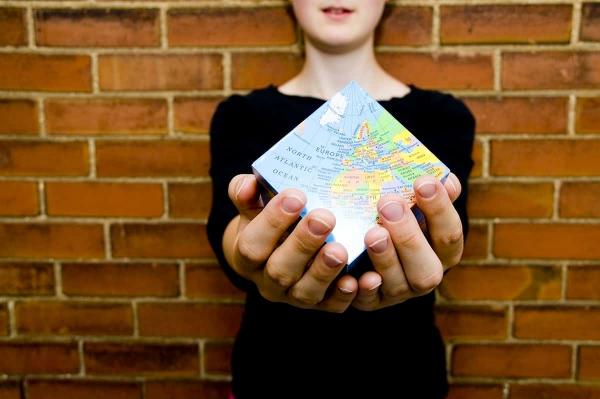
There's little doubt that the world can be a scary place in which to live. There's no shortage of disturbing stories making their way into our homes each night via the media. We watch tsunamis, earthquakes and senseless shootings unfold before our very eyes at 6 p.m., and then again at 10 p.m. and perhaps several times in between. Even as adults, a constant diet of watching frightening events is unsettling. For our children, it's even more distressing. The danger is that in addition to fueling their anxieties, all the doom and gloom can distort children's perception of the actual world in which they live.
Avoid mean world syndrome
Wikipedia describes something called mean world syndrome. "Mean world syndrome is a term coined by George Gerbner to describe a phenomenon whereby violence-related content of mass media makes viewers believe that the world is more dangerous than it actually is." The article continues: "Gerber, a pioneer researcher on the effects of television on society, argued that people who watched a large amount of television tended to think of the world as an unforgiving place. A direct correlation between the amount of television one watches and the amount of fear one harbors about the world has been proven."
Look for less sensational sources of information
While we can't always shield our kids from some of the worst of what the world has to offer, we can ameliorate those effects by reducing both ours and our children's experiences with these kinds of events. The news doesn't always have to be accompanied by upsetting pictures. Look for less sensational, age-appropriate sources of information for your children. And if the word's disasters get to be too much for your family, turn off the television.
Be aware that children take their cues from watching your reaction
Be aware that how you, as parents, react to these catastrophes will, in large measure, determine how your children react. Our children take their cues from us. Discuss the facts of the events calmly. Put them in perspective. If the disasters occurring are half a world away or half a country away, make sure your children understand the context of what they're watching. Make sure your kids understand that even though what they're seeing is scary, they are currently in a safe place. Let them cuddle up next to you.
Basic tips on how to talk to kids about scary world events
For parents who need guidance on how to talk to kids about scary world events, here are some basic tips from the National Mental Health Association:
- Encourage children to express their concerns and talk about their feelings. Some may be hesitant to bring it up, so start the conversation by letting them know you are interested in how they are coping with the information they are getting.
- Validate their feelings. Listen to what they are saying and don't interrupt. Don't minimize or dismiss their concerns.
- Reassure children that they are safe. Stress that schools are not dangerous places. In fact, recent studies show that schools are more secure now than ever before.
- Review safety procedures. Explain why visitors sign in at the school office or why certain doors stay locked during the school day.
- Create a safety plan. Help children develop their own action plan and identify at least one adult at school and in the community to whom they could go if they feel threatened or at risk. And ensure that your child knows how to reach you in case of an emergency during the school day.
- Watch your children for signs of distress or anxiety that might suggest that a child or teenager might need more assistance. Such indicators could be a change in the child's school performance, changes in relationships with peers or teachers, excessive worry, school refusal, sleeplessness, nightmares, headaches or stomachaches, or loss of interest in activities the child used to enjoy.
- Don't be afraid to ask for help. If you are worried about your child's reaction to the news or have concerns about his or her behavior or emotions, contact a mental health professional.
Counteract the negative with the positive
While the media does not always emphasize stories of hope and faith, don't let that stop you from doing so. Make sure your kids are seeing another side to life. Find positive and wholesome stories to share with your children. Reassure them that there's so much more to life than the scary world events portrayed in the media. Help your children find ways to help others who may be in need. That will give them a sense of purpose and control.
Don't fall victim to mean world syndrome and allow your freedom and your children's freedom to be restricted by fear. When that happens, the bad guys win.

